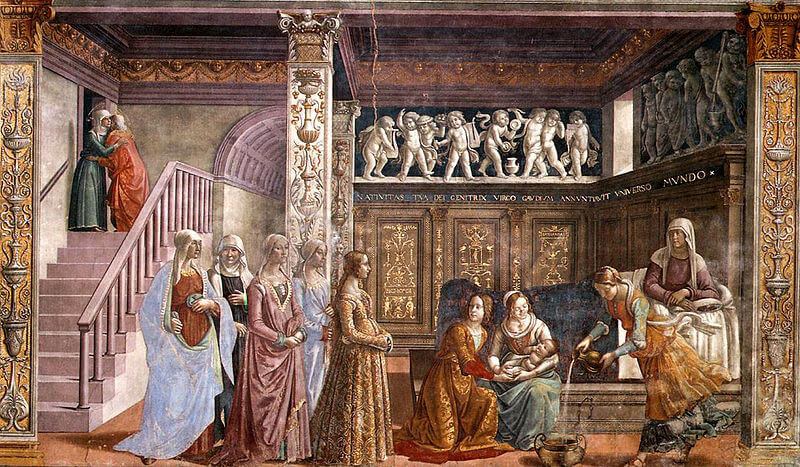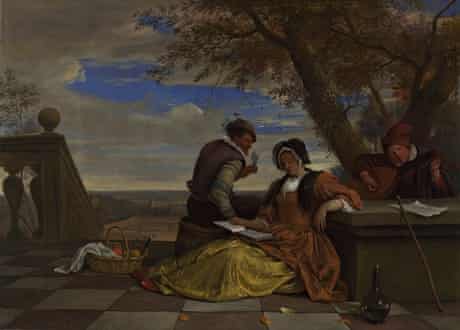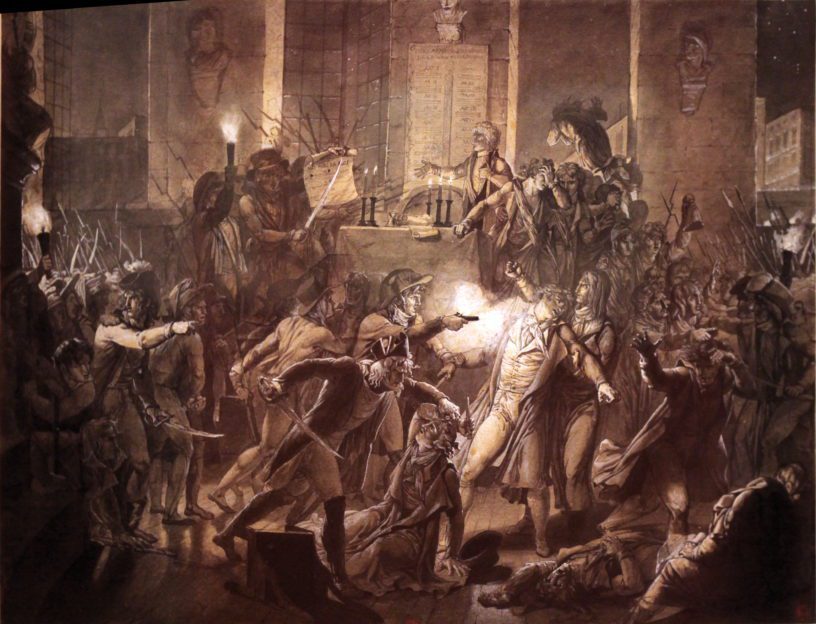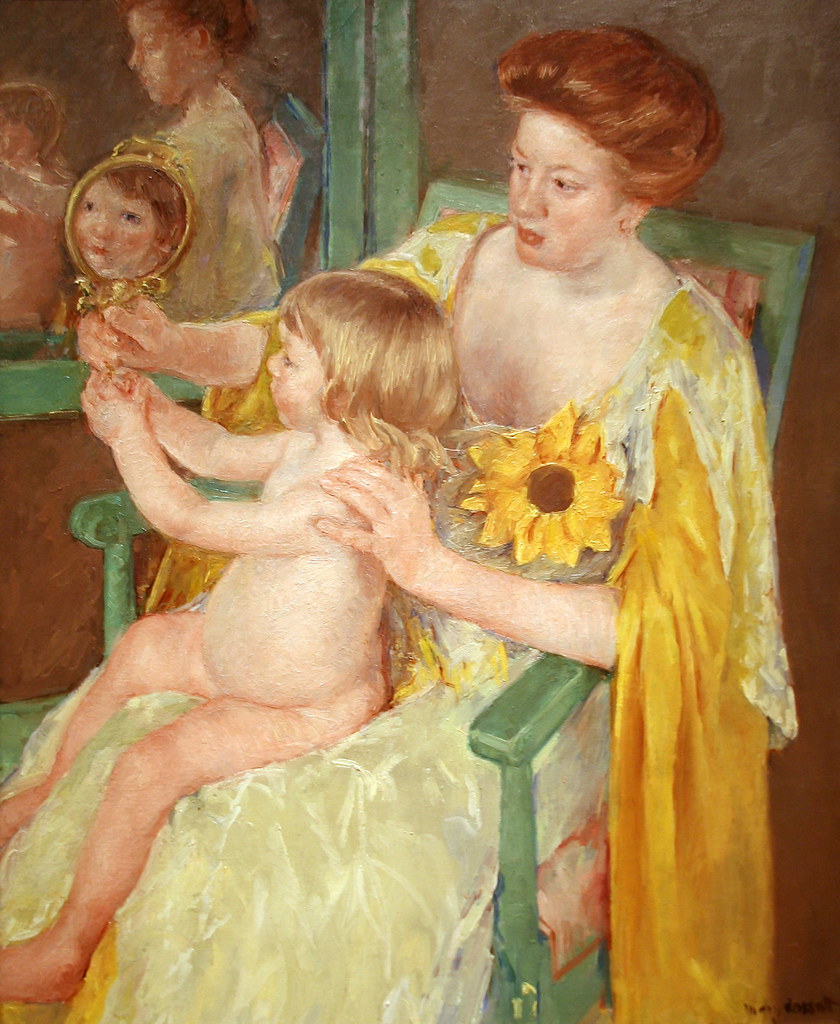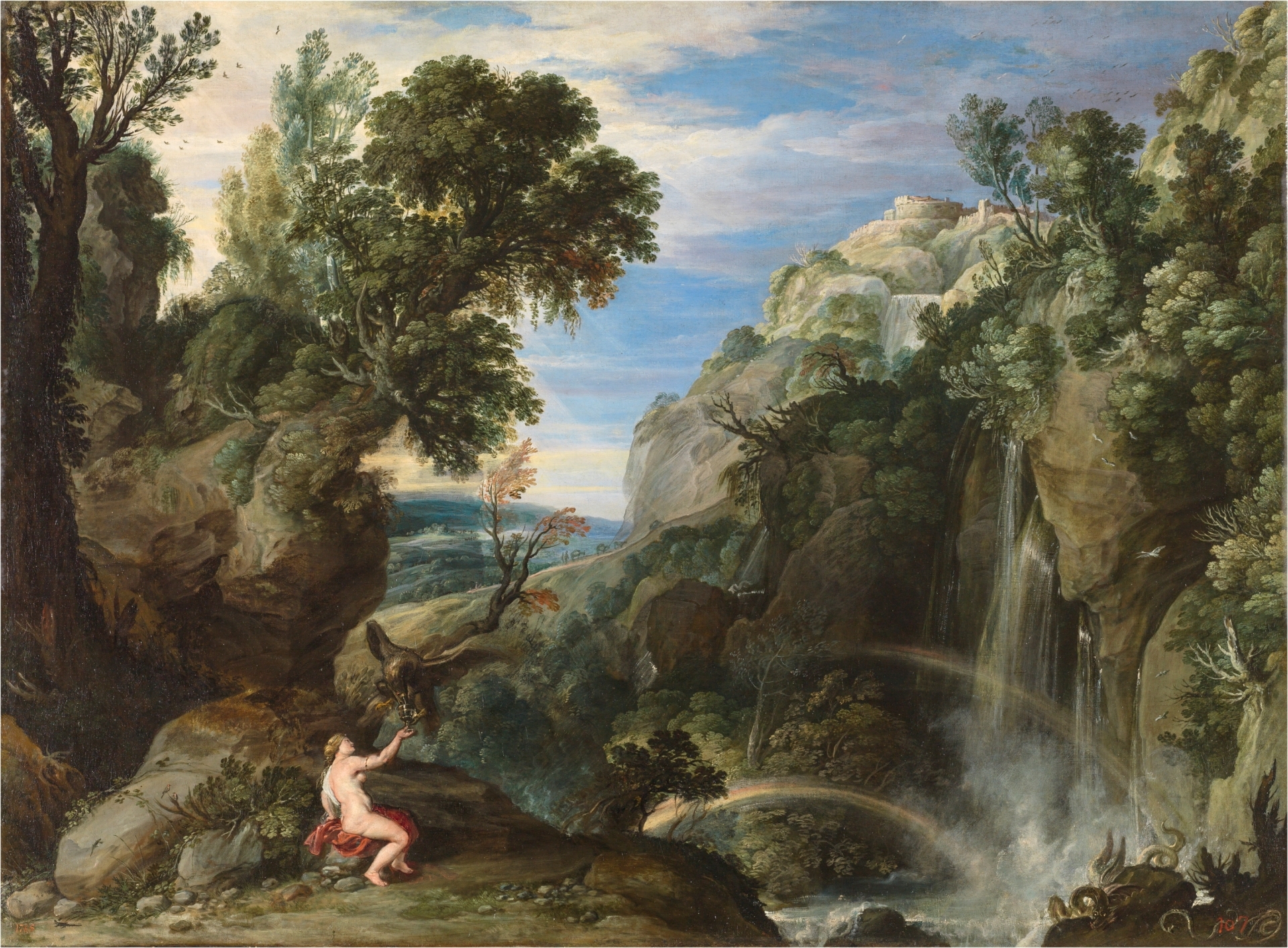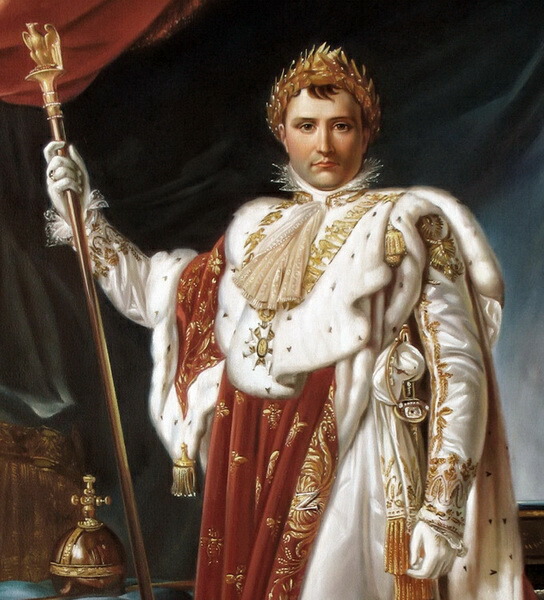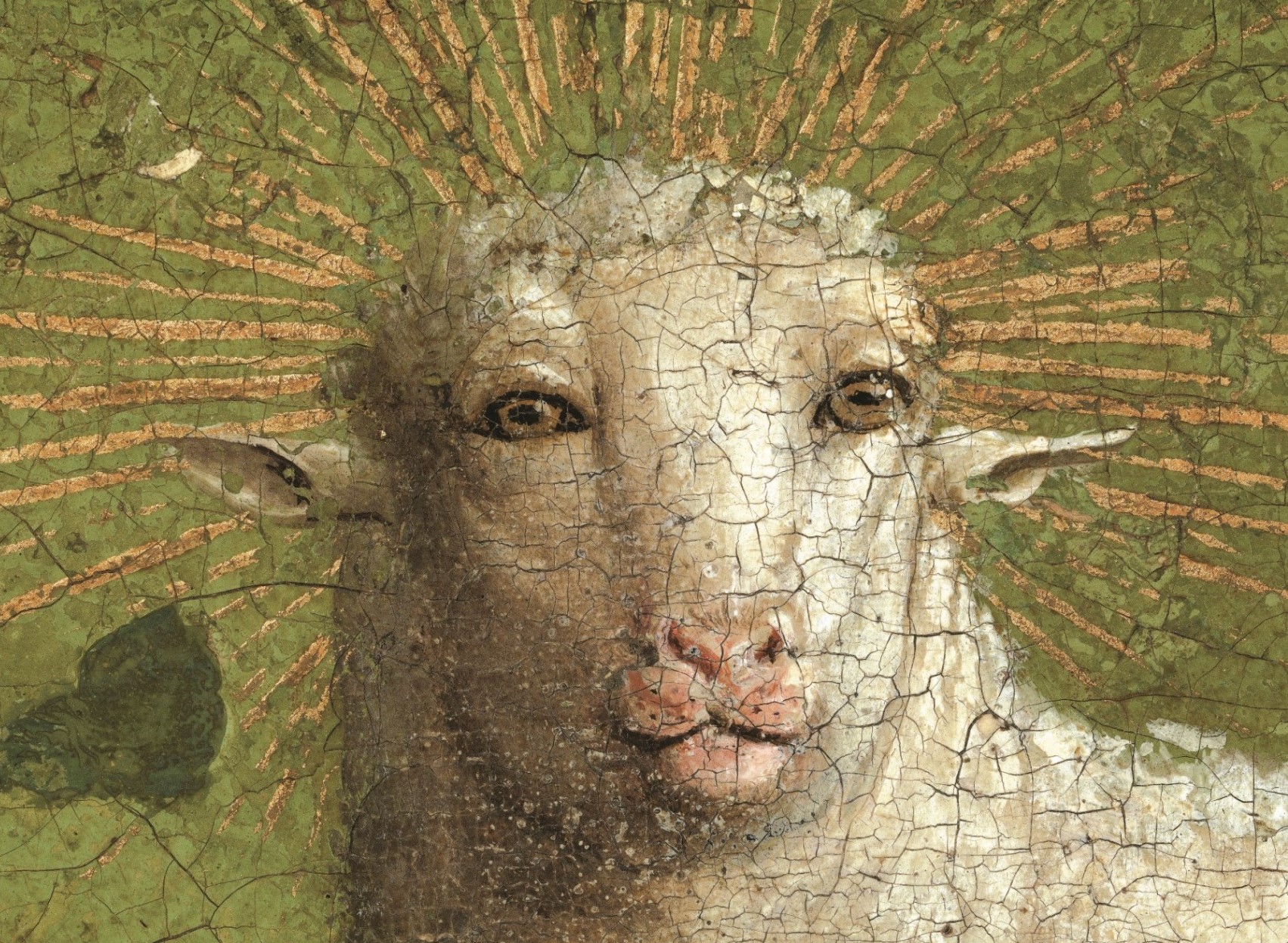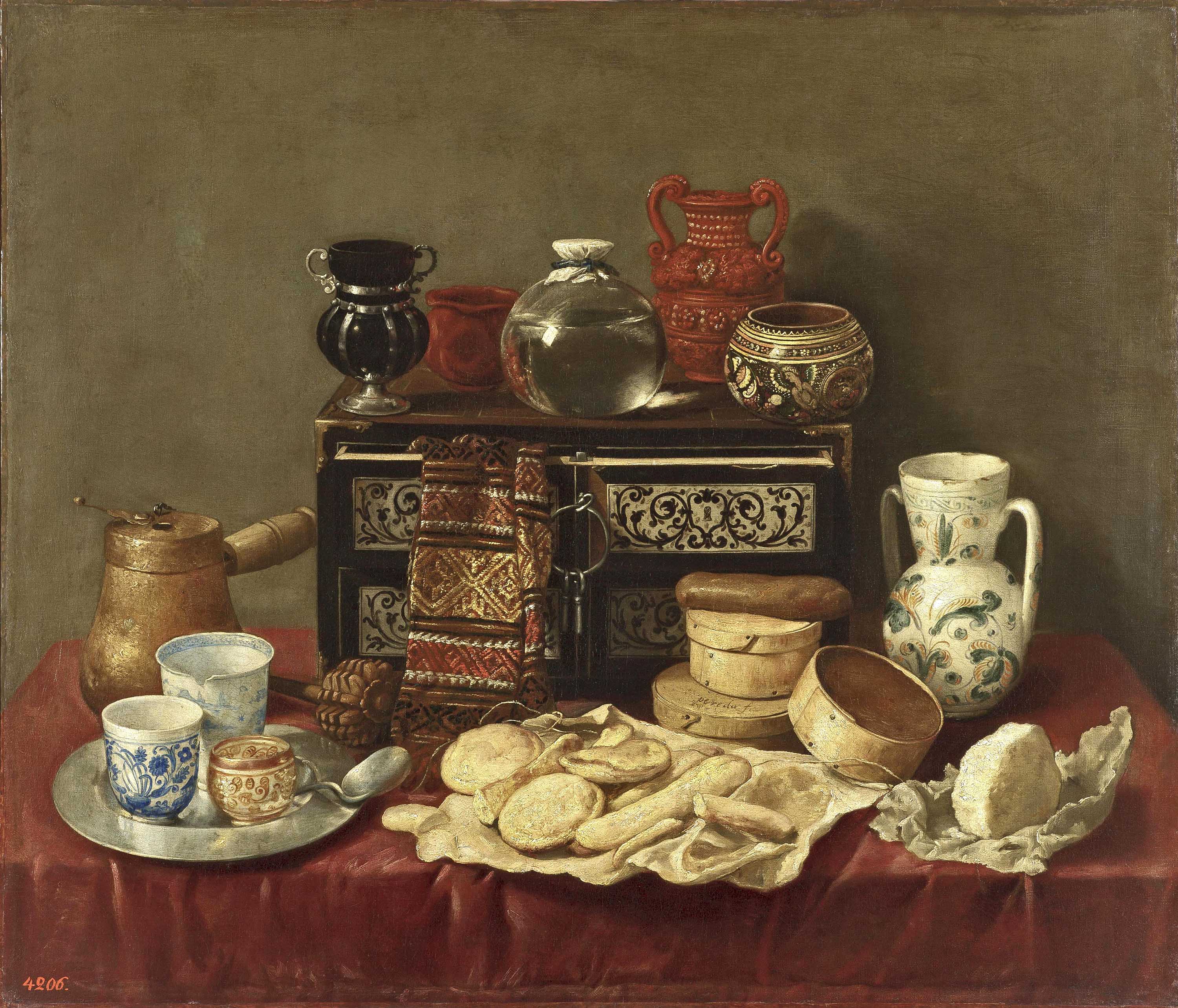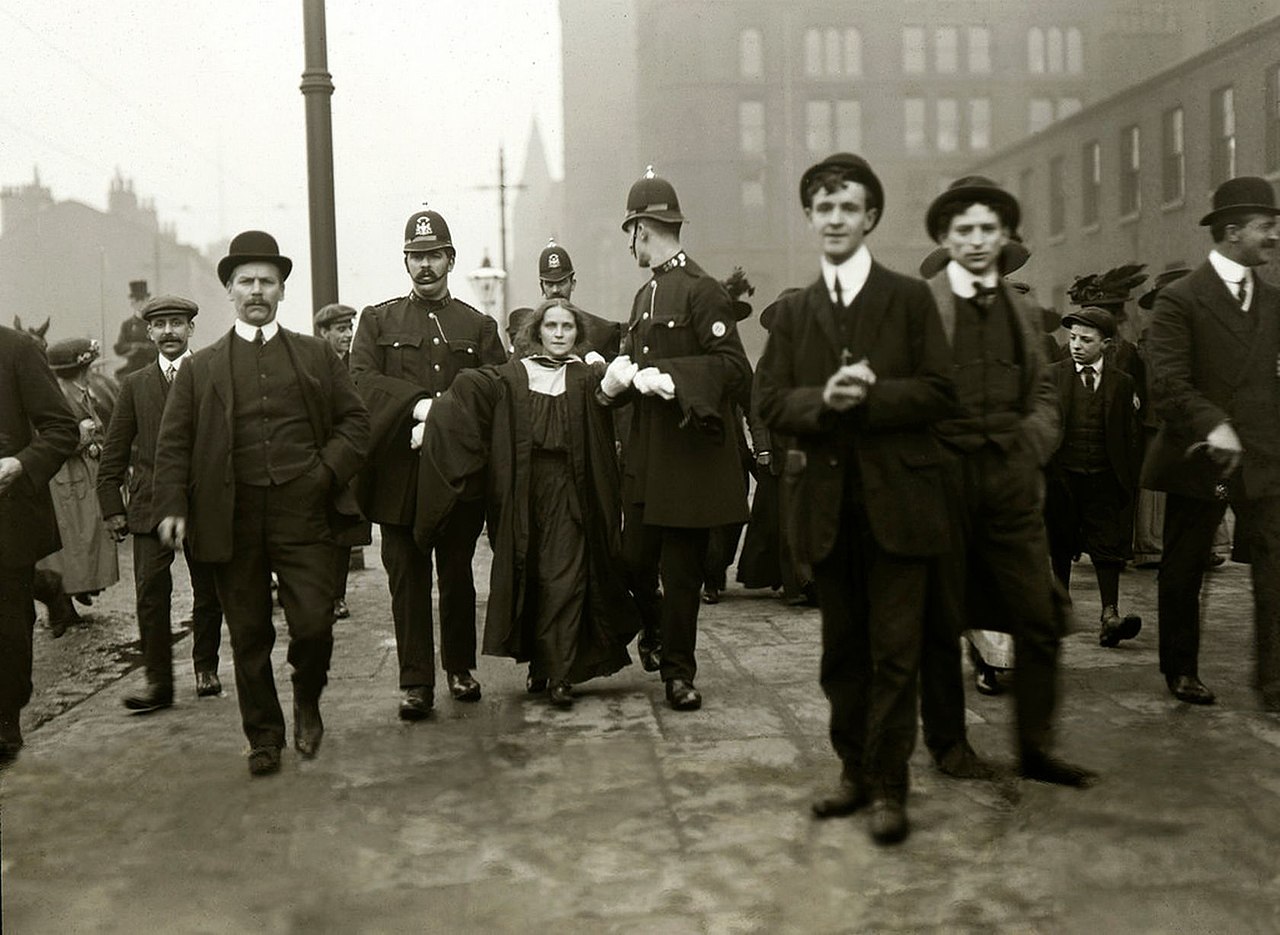
The arrest of Dora Marsden, 30th March, 1909
SELECTED POEMS OF HARRY CROSBY, Ben Mazer, ed, MAD HAT PRESS, 6/22/20
DECEMBER 10, 1929
That I can sit here and turn these pages and not die,
As you did, Harry Crosby, when the time was right,
Saying goodbye to Caresse, as you and Josephine turned out the light,
Every poem leading up to your death was just the way it had to have been,
Unless we don’t know that—because of freedom.
No one published your poems for 87 years, until Ben Mazer,
Who finds everything in the darkness of letters, like a laser.
I think of the Tell-Tale Heart when the old poetry had to die
And new poetry opened the door and shot light into the dark room onto the eye.
I can hear T.S. Eliot breathing low
In the stuffy rooms at Cambridge
When during the weekend Pound decided to come down.
Now, after another 27 difficult years, Robert Lowell sits there, remorseful, in his dressing gown.
The sun! give me the sun,
The true dawn, or none.
Give me the diary, Harry, give me the gun.
Was there freedom,
Too much freedom, too much—or absolutely none?
Ben Mazer, poet and editor, born in 1964, is saving poetry from its 20th century catastrophe.
He personally rescued Landis Everson, the most obscure figure of the San Francisco Renaissance, and found him publishing outlets.
He edited The Selected Poems of Frederick Goddard Tuckerman (Harvard University Press).
He edited the Complete Poems of John Crowe Ransom (The American South’s T.S. Eliot), noticed in a review by Helen Vendler in the New York Review of Books.
He recently received the green light from FSG to compile the first Collected Poems of Delmore Schwartz.
And now, perhaps the most exciting of all. Harry Crosby.
Ben Mazer is seeing into publication this year, as editor, the Selected Poems of Harry Crosby, allowing the world to see this central figure for the first time since this Back Bay rich boy (nephew to J.P. Morgan) danced on the world’s stage and self-published his poetry almost 100 years ago.
Crosby belonged to poetry’s One True Circle which overlapped, as one would expect, with the worlds of High Finance, War Profits, and Modern Painting. Crosby knew Hart Crane, Ezra Pound, DH Lawrence, among others, and was mentored by a wealthy gentleman, Walter Berry (Crosby got his book collection when Berry died in 1927 a few days before Crosby’s 30th birthday) who knew Henry James and Marcel Proust.
Crosby, however, has been utterly forgotten.
Why?
This is what makes Mazer’s project so exciting. Crosby exemplified, perhaps more than any other poet, the One True Circle of 20th Century Anglo-American Poetry, the Who’s Who of Modern Poetry All Intellectuals Know.
Crosby was the craziest of all. The really embarrassing one. He was loved. But he was excluded—that is, written out of the canon.
The insane, tabloid, side of the One True Circle is embarrassing, and much of it is not fit for school.
A 20th century poet, to be known, had to be taught in school. Ezra Pound and WC Williams were as unknown as Harry Crosby, when a couple of government-connected New Critics, in the middle of the 20th Century, put Pound and Williams in a college textbook, Understanding Poetry.
License.
The license of those times, the moral looseness of the One True Circle itself, was one kind of very real license. This was widely understood.
The poems selected for especial praise by the editors of Understanding Poetry were two very brief ones—one by Williams, and one by his U Penn friend, Pound—describing plainly, a red wheel barrow, and petals on a black bough.
Poems praised—and yet poems anyone could write.
The other kind of license was the one for the public at large.
The poetry establishment, without directly saying so, was giving the public license. The Petals-and-Wheel Barrow clique was rather priestly and private, but it’s implicit message to the reading public was loud and clear: to be a Byron was now a snap—poetry was now extremely brief and extremely easy.
Harry Crosby did not write a two line poem on flower petals or a five or six line poem on a wheel barrow.
Crosby went Williams and Pound one better.
Harry Crosby produced a one line poem:
a naked lady in a yellow hat
Crosby was too hot to handle for a college textbook in the 1930s; Crosby made the tabloids when he shot himself on December 10th 1929, in a suicide pact with his mistress.
Pound and Williams were more attractive.
First, they were alive; second, their poems were austere and moral compared to Crosby’s—who more accurately (and this was a problem in itself) reflected the unfettered, anything-goes, private-parties-of-the-rich sensibility of the One True Circle.
But now Pound and Williams are also dead.
And we can handle anything.
And as we disentangle ourselves from the selling of poetry—the selling that was very consciously done by the One True Circle in the 20th century— and view poetry and the One True Circle more discerningly, we can welcome Harry Crosby into the wider fold, and allow him his rightful place in a pantheon which may be sordid and embarrassing, but is necessary, not only for historical study, but for poetry, itself.
Mazer is also, for those who know his work, perhaps the most important American poet writing today. His Selected Poems is recently published.
Americans don’t speak much of 21st century poetry. The whole thing is too embarrassing. Too painful.
There isn’t one critically acclaimed, popular, anything in poetry left.
There’s merely a cool kids list which changes every few months.
There is no poetry, in terms of centralized recognition.
We now live in the Great Empty Hangover of a 1920s Gatsby party.
New Jersey poet Louis Ginsberg was a Nudist Camp member, and belonged to the One True Circle—in particular: Alfred Kreymborg/WC Williams/Ezra Pound/Wallace Stevens/Man Ray/Duchamp. His son was Allen Ginsberg.
Ginsberg, who gained fame, like Baudelaire and Joyce, from obscenity controversy, died in 1997.
Maya Angelou died in 2014.
John Ashbery—known for poetry which “makes no sense,” associated with Modern Art circles in New York City, including Peggy Guggenheim—a modern Gertrude Stein, who was awarded his Yale Younger Poets Award by W.H. Auden, died in 2017.
No one has replaced these figures.
A few replacement figures may exist, poets who knew Elizabeth Bishop and Robert Lowell, for instance, but the magnetic pull which holds pieces of inspiration together—think of Plato’s Ion—just isn’t strong enough. These figures may be on poetry lists, but the public doesn’t know them.
The total absence of poetry in the 21st century, its complete de-centered, trivial, existence is the void now faced by Mazer with his lantern.
Here’s an example. The Essential T.S. Eliot was just published (April 2020), reprinting the better-known poems and one essay, “Tradition and the Individual Talent.”
The only thing new in the Essential T.S. Eliot is the introduction by Vijay Seshadri. A nice essay. He has the slick, academic, ‘priesthood patter’ down—Pound and Eliot are profound and wonderful in all sorts of (World War One! The Horror!) ways.
However, in this new, rather sizeable introduction, no one after the middle of the 20th century is mentioned.
I find this very interesting. The occasion of reprinting T.S. Eliot, in 2020, is cause for not even the faintest flutter in the post-Eliot Tradition.
So what is all this fuss about the Tradition, then?
Does it stop with Eliot and Pound?
Walt Whitman makes an appearance in the introduction—Seshadri tells us Eliot and Whitman are opposites, but also informs us that both were reactionary in their politics and both were influenced by a terrible war.
The most recent figure mentioned in Seshadri’s introduction is Hugh Kenner. Seshadri reminds us that Bertrand Russell—son of Lord Russell, Prime Minster of England when Whitman was writing—slept with Eliot’s wife. Well, what would an examination of the One True Circle be, after all, without a Harry Crosby type of anecdote?
Eliot, and especially his associate, Ezra Pound—-both unknown and hungry during World War One—as mature, middle-aged, literary figures, both bet, essentially, on the Axis Powers to win World War Two. The second half of the 20th century, therefore, saw the entire sensibility of poetry, unlike the booming, victorious-over-Hitler, United States itself, become a high brow contest to see who could best apologize for what we were told was the best of our poetry—which had lost.
The worst “loser,” the embodiment of all that was lauded in the “new” poetry, was Ezra Pound—a T.S. Eliot objection away from being hung as a traitor in Italy in 1945. Ezra Pound, the irascible, cash-handy, “Make It New” deal-maker, the flesh of the poetry that was supposed to carry us forward to new heights of insight and interest.
But a curious thing happened.
As the 20th century went on, the “new” poetry, instead of taking us forward, took us back.
Poetry kept returning to Ezra Pound, Imagiste poet of World War One; it kept going back to T.S. Eliot and The Waste Land, which will be a hundred years old in 2022; this was the narrative: Pound, Eliot, Pound, Eliot.
But what of us? What of the next generations? Well, you had Ashbery, the late 20th century god, chosen by Auden—who had been chosen by Eliot. There was simply no escape. The One True Circle, which began in William James’ mental laboratory, kept shining. The rest of us could go to hell.
The One Circle trapped us in so many ways.
The 1970s pot-smoking professors trapped us, with their unreadable doctoral theses on Finnegan’s Wake and The Cantos.
There was the poetry itself which trapped us, the poetry which now anybody could write, and they did: your professor, your classmates, all the while doing the necessary obeisance to the “new” poetry—the crappy sort of poetry so easy to write—it only had to be obscure enough, which made it possible for anyone to believe they were a poet—as long as poetry that was actually good was kept, as much as possible, out of sight.
The poetry that was actually good was anything studied, anthologized, and written, prior to the existence of the One True Circle—that is, whatever Pound and Eliot dismissed: Milton, Poe, Shakespeare.
The past had to be read selectively, based on the One True Circle’s recommendations—one couldn’t just love old poetry—no, that was forbidden. Villon, yes. The “French Symbolists.” Yes. Rimbaud was terribly, terribly cool, even in a Bob Dylan, son of Woody Guthrie, sort of way. Even though no one knew what Rimbaud was talking about. (For a while we didn’t know what Dylan was talking about.) Obscurity was always good. So Rimbaud was good. Baudelaire was good, no, great, because he was completely wretched. It was as if Baudelaire were alive during WW I! So he was good. And French, of course, was good. A few tortured passages by Donne. Yes. That was okay, too. Pre-Raphaelite was very good. Because it was prior to the Renaissance, you see. And the Renaissance, because it was truly good, was very, very bad. Byron, Poe, Milton, Elizabeth Barrett, Edna Millay, Sara Teasdale. No way. Millay and Teasdale were especially annoying, because they wrote a little too much beautiful poetry that actually was good, and they also had the audacity to be contemporary. Hugh Kenner, the Pound fan, was quick to dismiss Millay. And those in the One True Circle nodded silently.
So here we are in 2020, with a big poetic nothing.
We are still talking about Ezra Pound and T.S. Eliot, or Pound’s friend, WC Williams.
And exactly in the way the New Critics wanted us to talk about them. The “difficult,” academic-priestly, text-centered way, is how we appropriately baffle ourselves.
There is only one thing which can be discussed outside the text.
World War One’s horrors.
It isn’t so much that we shouldn’t be talking about Eliot. Certainly, we should. He was a good poet, and a good critic, and the Great War did happen, after all.
But what about everybody else? What about the big future nothing which the cloudy, morbid, obsession with Modernism has created?
We hear, over and over again, how Eliot’s entire poetic being was a casualty of WW I, (the way “mad Ireland hurt” Yeats “into poetry”—Auden) but Modernist critics never stop to think how maybe the reader is a casualty of Modernism, which came about, as every Modernist is quick to point out, in de rigueur wretched tones, because of a horrific war. If the horrific war was real, and Modernism’s reaction to it was real, then here is the Romantic poison drunk during the French Revolution—only we can’t talk about the French Revolution, because the One True Circle needs to be historically exclusive, as we see time and time again. Go back—but only to Pound and World War One, please. Stop there. And then, and only then, perhaps, you may perhaps travel indirectly back—as long as you don’t lose the thread, and forget that it connects to Pound—to, let’s say, Rimbaud, the anti-Romantic.
And never, never say the Modernist poets were part of the same group that produced World War One. Always portray the Modernist poets as victims of the Great War. Even if Ford Maddox Ford worked in the War Propaganda Office. Whatever you do, don’t mention that! Modernism was a burning cauldron heated by the fires of World War One. And it melted everything. That is all.
We bet on the Pound clique, and lost.
After the war, Pound had to be rescued; somehow World War Two had to be forgotten; unlike WW I, there was no WW II poetry of any note.
The Bollingen Prize—the first one—in 1949, was the stamp of approval, the swift and necessary repair of Pound’s reputation. Had Pound been quickly shot as a traitor, the poetry of our age would look entirely different.
The Bollingen Prize was presented to Pound, (amid howls of protest, of course) by three judges W.H. Auden, TS Eliot, and Conrad Aiken.
The One True Circle had to defend itself; it almost imploded, as World War Two made World War One temporarily irrelevant. Thank God for the Bollingen and 1949!
New Critic and Southerner Allen Tate, who New Englander Robert Lowell worshiped (his eyes on the One True Circle) helped start the Writing Program at Princeton—where professor RP Blackmur taught the younger Princeton creative writing professor John Berryman how to drink—ending in Berryman’s suicide at the U. of Minnesota.
Princeton eventually took over the Bolligen Prize, which was the unofficial life blood of the One True Circle, as the 20th Century progressed, and they give out the Bollignen Prize to this day, the prize itself over-shadowing poets whom no one knows.
The Bollingen continues, but it only exists because Pound had to be saved.
Bollingen, by the way, is the name of the house of Carl Jung. The Bollingen prize originally had non-poetry money attached to it (normal for how poetry grew during the 20th century). Fortunately for the One True Circle, it fell into the lap of Pound’s friend, T.S. Eliot, and the two other judges, who were both Eliot’s friends, at the Library of Congress.
Conrad Aiken and Eliot were old Harvard friends—Harvard profs William James (sometimes known as the Nitrous Oxide Philosopher) and George Santayana, a bachelor who lived the last 20 years of his life in fascist Italy, were the two greatest influences on Aiken and Eliot (as well as Wallace Stevens).
Ralph Waldo Emerson—the antithesis of Poe and friends with T.S. Eliot’s New England grandfather—was William James’ godfather—and William James was the brother of the Great, Inscrutable, Expat, Novelist Henry James. William James was the founder of the first Psychology Department in the United States, at Harvard—and it could be said that William James might be the beginning of the One True Circle, if we must trace it back. (Though it’s in the nature of any True Circle never to be understood.) William James (also known as the Stream-of-Consciousness philosopher, though of course he didn’t invent stream of consciousness) also taught Gertrude Stein (one foot in the Nonsense Poetry Business, one foot in the Modern Painting Business)—she is of course an important member of the One True Circle. (This game is very easy, but don’t let the ease fool you.)
Eliot was very much like the trans-Atlantic Henry James. The distinguished magazine, The Atlantic, was where Henry James was first published—by William Dean Howells, the editor set up there by Emerson. Eliot’s early tea-cup poetry resembles the novels of Henry James.
The One True Circle is almost entirely made up of men—but women were extremely influential behind the scenes, just as a great deal of non-poetry money was behind the scenes. Pound needed lots of ready money to be the influence he was, and this mostly came from Pound’s female contacts.
Eliot’s first book (it was really a “pamphlet” according to Seshardri), Prufrock and Other Observations, was subsidized by Pound’s wife and published by the Egoist, a vital Modernist magazine, (Conrad Aiken was the first to review Prufrock and Other Observations—do you see how it works?) and yet the magazine itself, prior to being the Egoist, had been a radical feminist one, The New Freewoman, run by Dora Marsden, before it became, still under her leadership—but guided increasingly by Pound—the Egoist.
Marsden was too radical for even her radical feminist cohorts; she lived the last 40 years of her life as a broken recluse. She was a passionate believer in radical individualism, feminism, and free love. This is somewhat ironic, given the fact that the mature, “conservative” Eliot excoriated the young Shelley for advocating free love. Eliot’s career was born on the shoulders of “free love.” Eliot never had to apologize for his abuse of Shelley, however, because Shelley, the stunning Romantic poet, was persona non grata to Pound’s One True Circle, anyway.
Letters in the 20th century decided to make an American poetry hero out of Ezra Pound and to make College Writing Programs (‘you, too, can be a poet’) the key to success in poetry.
The result: American poetry no longer has a public.
Of course, what happened, happened. Nothing written here is the attempt to make it all go away. Quite the contrary. We might as well go into it even deeper, if we are to come out of it, and start anew.
Harry Crosby and his Black Sun Press is an important part of that story.
It was suppressed then, and Ben Mazer is bringing it back to light, now.
Mazer’s introduction to Harry’s poems is mostly factual. He details Harry’s life as WW I soldier, poet, and lover. He praises the poetry as having that quality where every reader can see something different in it. He lauds its sincerity. The introduction ends this way:
A notable occasion in Harry’s life was when he witnessed Lindbergh’s landing in Paris on May 20, 1927. On August 1, 1929, he decided that he wanted to learn how to fly. Soon he was taking lessons, and going up with an instructor. Then, he became more and more impatient as he yearned to be allowed to fly solo, but continued to be sent up with an instructor. He was determined to fly solo before departing for America. Finally, on Armistice Day, November 11, Harry completed his first solo flight. Five days later he and Caresse sailed for New York on the Mauretania. On November 18, Harry received a radiogram from Josephine: “IMPATIENT.” On November 22, the Crosbys docked in New York. The next day, Harry visited Josephine before the Harvard-Yale football game. Harry saw much of Josephine in the next two weeks. The final entry in Harry’s diary reads:
One is not in love unless one desires to die with one’s beloved
There is only one happiness it is to love and to be loved
One can get lost in the tabloid excess of Harry’s life. But there was a tragic Romantic figure beneath the excess—a deeply sensitive man who loved.
The poems of Harry Crosby are bright, fanciful. Here are two samples:
I am endeavoring to persuade a Chinese professor who is at work on a torpedo which he expects to shoot to the sun to allow me to live in the centre of this torpedo
And
a giraffe is gorging himself on sunflowers a Parisian doll is washing herself in a blue fingerbowl while I insist on their electrocution on the grounds of indecency
Crosby’s poetry has a quality which represents the times in which he lived better than anything else that was being published then.
T.S. Eliot thought.
Harry Crosby lived.
The following is one of the most interesting things I found in the book.
This excerpt—from a critical piece Crosby published in the summer of the year he died—proves that Harry belonged, at least in his own mind, to the One True Circle. You can tell by his likes and dislikes. The following perhaps reveals too much. There is a cult-like worship of those in the One True Circle, which may have even unsettled the members of the One True Circle themselves. Did Crosby hate Amy Lowell because she was against the U.S. entering World War One—which made his uncle, J.P. Morgan, rich? Amy Lowell was dedicated to poetry. Pound, police commissioner of the One True Circle, did nothing but ridicule her. And why did Crosby reject a beautiful poet like Edna Saint Vincent Millay? Perhaps Millay wanted nothing to do with the One True Circle? After all, not everyone liked Ezra Pound.
A well-known phenomenon in the East is the False Dawn, a transient light on the horizon an hour before the True Dawn. The False Dawn = the poets sponsored by Amy Lowell and the Imagists who flickered for a brief instant on the horizon before they dwindled into the Robert Hillyers and Humbert Wolfs, the Edna Saint Vincent Millays, the Walter de la Meres, the Benets and Untermeyers, the Auslanders and Teasdales who spot with their flytracks the bloated pages of our magazines and anthologies. Once again the general reader has been deceived by the False Dawn and has gone back to bed (who can blame him?) thus missing the True Dawn which has definitely appeared on the horizon harbingered by T.S. Eliot, heralded by the Morning Star of Joyce and heliorayed with the bright shafts of Hart Crane, E.E. Cummings, Perse and MacLeish, Gertrude Stein, Desnos, Eluard, Jolas and Kay Boyle.
—Harry Crosby, 1929
Thank you, Ben Mazer.
Harry Crosby and the True Dawn (there was some truth) will always be looking for us.
Those “bright shafts.”
~~~~~
Salem MA, May 1 2020
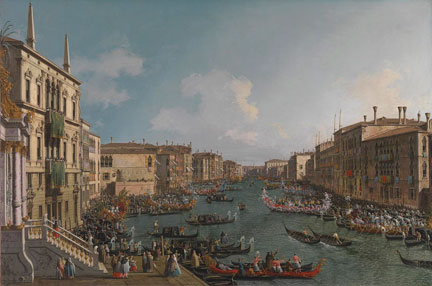

/https://public-media.si-cdn.com/filer/Hudson-River-Mellen-FieldBeach-631.jpg)
